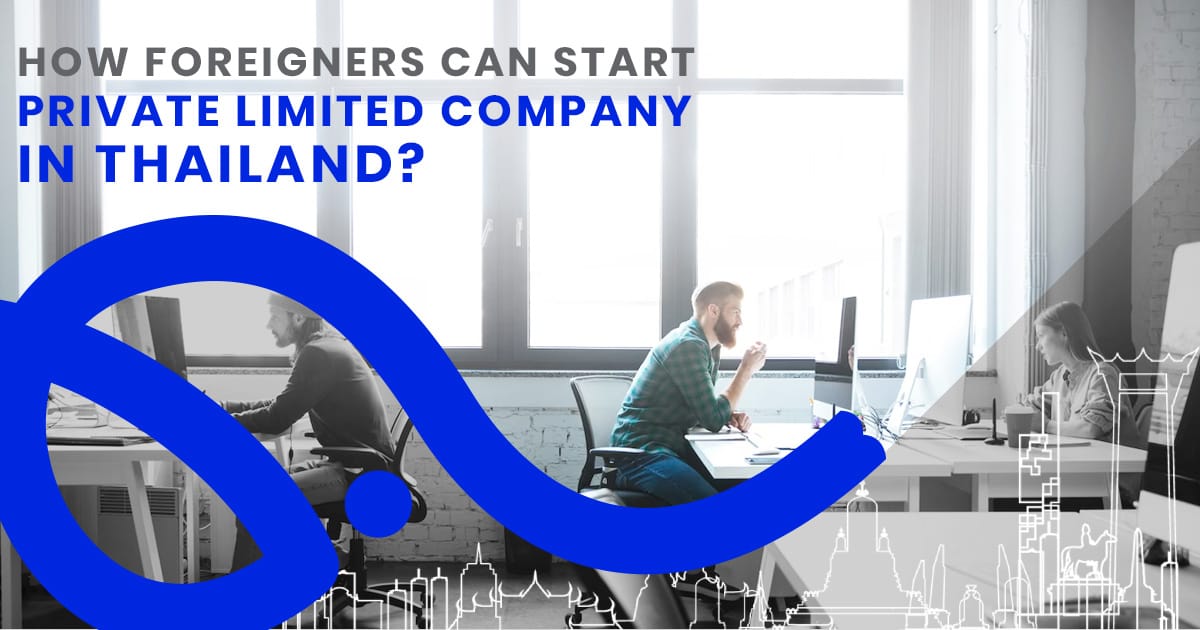A Private Limited Company in Thailand is the most popular business form in the kingdom. It is popular among foreign enterprises and entrepreneurs wishing to grow into the Thai market. Additionally, foreigner investors prefer this category, as it allows them to own property, live, and work in Thailand.
Thailand encourages foreign direct investment. However, foreign investors wanting to form a Private Limited Company in Thailand must overcome restrictions of Foreign Business Act (FBA). For starters, a limited company’s foreign ownership is limited to 49 percent. This implies that the majority of the shares must hold Thai ownership. Furthermore, the FBA limits certain commercial operations solely for Thai nationals and prevents foreigners from engaging in certain business activities.
Despite the existing restrictions, there are a few exceptions to the FBA’s restrictions. These allow foreigners to own a private limited company in Thailand that would otherwise be prohibited, such as:
(1) Obtaining a Foreign Business License,
(2) Obtaining a Board of Investment Promotion License,
(3) Obtaining a license from the Industrial Estate Authority of Thailand, or
(4) Obtaining a Certificate of Business Operations. This option is applicable only to Americans, Australians, Japanese and nationals from ASEAN countries engaged in specific businesses.
This article delves deeper into these possibilities. Foreign investors, should get advice of an experienced lawyer before incorporating a limited liability company in Thailand.
Obtaining Foreign Business License (FBL)
On obtaining a Foreign Business License, a foreign investor can possess more than 49% of a Thai company. Foreign businesses that are distinctive and do not compete with Thai businesses easily gets an FBL. To qualify for an FBL, the company must have a minimum capital of THB 2 million (about USD 60,500). Additionally, its business activity must be under the FBA’s categories. These categories primarily include accounting, legal, architectural, engineering, agent or broker, food and beverage, and so on.
Obtaining Board of Investment (BOI) Promotions
Thailand’s Board of Investment (BOI) is a government agency that promotes international investment. In contrast to acquiring an FBL, BOI certified businesses can take advantage of a variety of perks. These includes an 8-year exemption from corporate income tax, an exemption or decrease in import tariffs. Additionally, they can avail a smooth process for non-immigrant visas and work permits. Above all, BOI certification can allow 100% foreign ownership. It is possible even if the company’s business operations are normally for locals or local businesses.
Companies interested in applying for BOI promotion must have a minimum capital investment of THB 1 million (approximately USD 30,000). Additionally, it must have three registered shareholders, be a Thai company, and apply in one of the eligible industries. These industries include but are not limited to digital, manufacturing, agricultural, mineral exploration, and technology development.
Obtaining Industrial Estate Authority of Thailand (IEAT) Permission
Although foreigners normally cannot hold land in Thailand, the Industrial Estate Authority of Thailand Act (IEAT) makes an exception, allowing foreign entrepreneurs to acquire industrial estate land for the purpose of conducting business. However, this right is conditional on the foreign investor acquiring a license from Thailand’s Industrial Estate Authority. Similar incentives are available to foreign investors operating a business in an industrial estate, such as the ability to obtain work permits for foreign skilled workers and their dependents, import/export duty exemptions, and VAT and excise tax exemptions on imported materials, machinery, and supplies.
The investor must supply information on the company, the specific plot of land the applicant can purchase, and the manufacturing process in order to get an IEAT licence. After obtaining a license, the investor must begin the process of purchasing a parcel of land. It’s vital to remember that once activities commence, the investor must adhere to the IEAT’s land criteria.
Obtain Certificate of Business Operations
Thailand has signed multiple Free Trade Agreements with the United States, Australia, Japan, and ASEAN states, granting reciprocal rights to foreign investors to control a majority stake in a Thai private limited business. Foreign investors of American, Australian, or Japanese nationality will be able to apply for a Certificate of Business Operations, which will allow them to own majority shares in a company, thanks to existing accords with Thailand. Mining, distribution services, constructions, restaurants, and hotels are just a few of the types of businesses that can apply for a Certificate of Business Operations.
When ASEAN nationals engage in specified activities such as mining, fishing, legal services, accountancy, or architecture, Thailand has allowed them the same privilege. When both choices are available, the Certificate of Business Operations is more appealing than the FBL because of its simple and quick process.
The Bottomline
There are various strict business protocols for foreigners to open a private limited liability company in Thailand. However, there are certain regulations which make these protocols lighter. But, to avail the benefits of these foreigner investor-friendly regulations, you need expert legal advice. It is because few exemptions are on the basis of nationality of investors and few depend on the industry of the business.
Feel free to book a free round of consultation with us for the best legal advice. Alternatively, you may also email us at officer@konradlegal.com.



